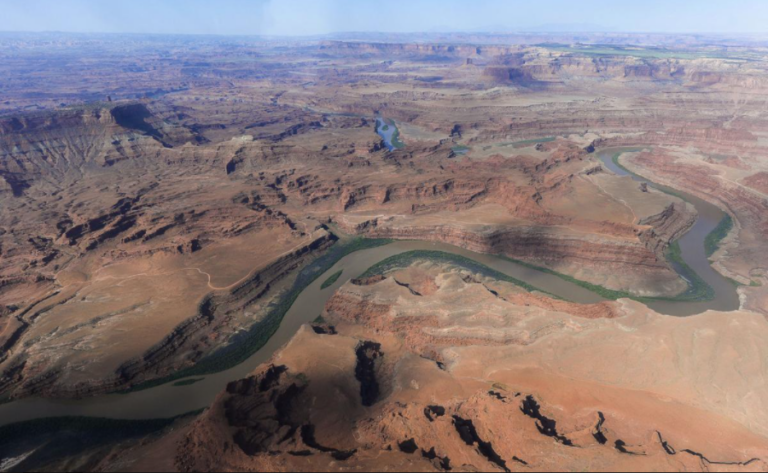A new report from The Utah Rivers Council claims Utah, Colorado and New Mexico are using more than their legal allotments of river water, which could result in a call from Lower Basin states, including Arizona, to reduce their take.
That call could take place if the Upper Basin is no longer able to meet its obligation to deliver a minimum of 75 million acre-feet to the Lower Basin over 10 years under the 1922 Colorado River Compact.
A so-called “Compact Call” could require those states to make sure Arizona, California and Nevada receive their share of river water.
The current situation is made worse by dam and diversion projects planned in the Upper Basin states, which could remove roughly 400,000 acre-feet from the river. These projects include the highly controversial Lake Powell Pipeline, which would transport river water from Lake Powell to St. George, Utah, a rapidly growing community best known as an outdoor recreation area.
The Colorado River has decreased 19% in terms of flow from its average of 15-million-acre feet through the 20th century.
Water use between Upper and Lower Basin states has long been a contentious issue, with both sides accusing the other of irresponsible use.
Lower Basin states have approved two drought related plans since 2019, even as they acknowledge their annual use has increased.
Despite the plans, there are no specific reduction measures in place yet, and The Utah Rivers Council calls the current lack of discussion on the matter “alarming.” (Source)

